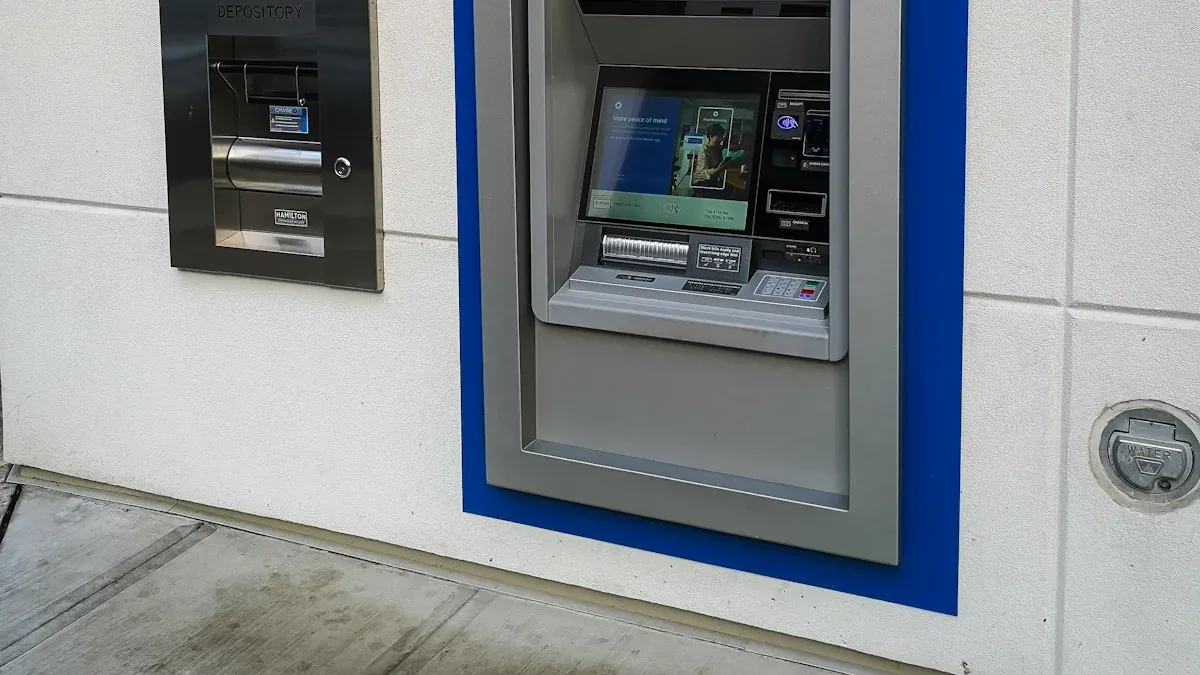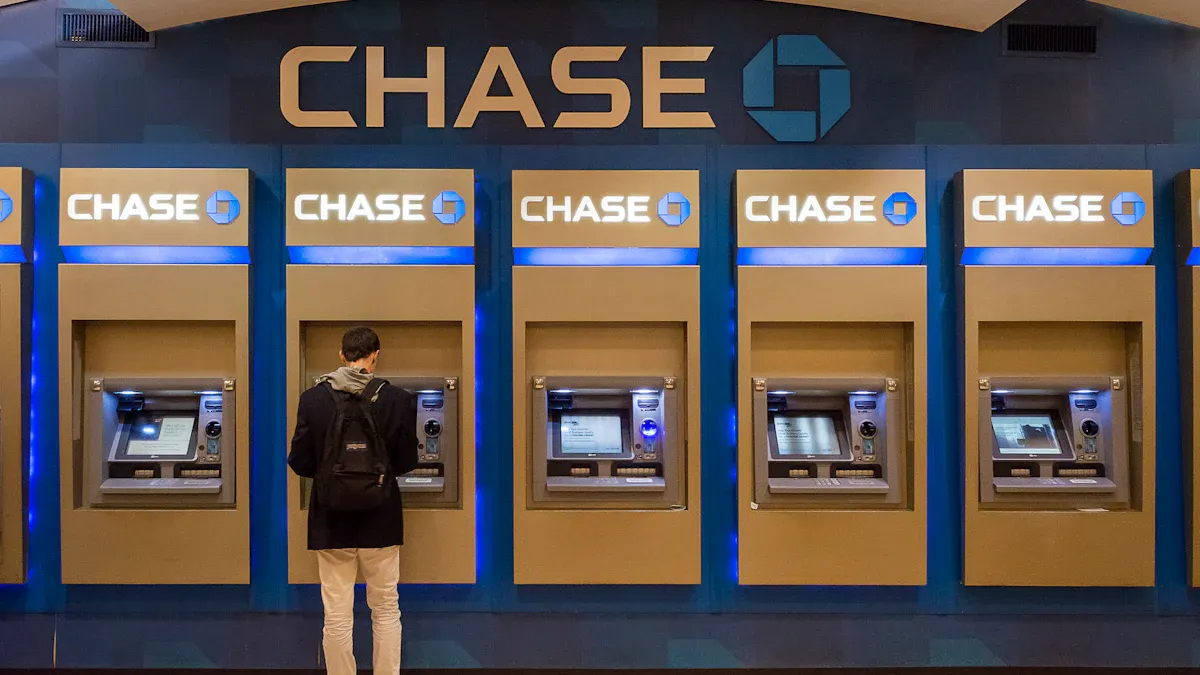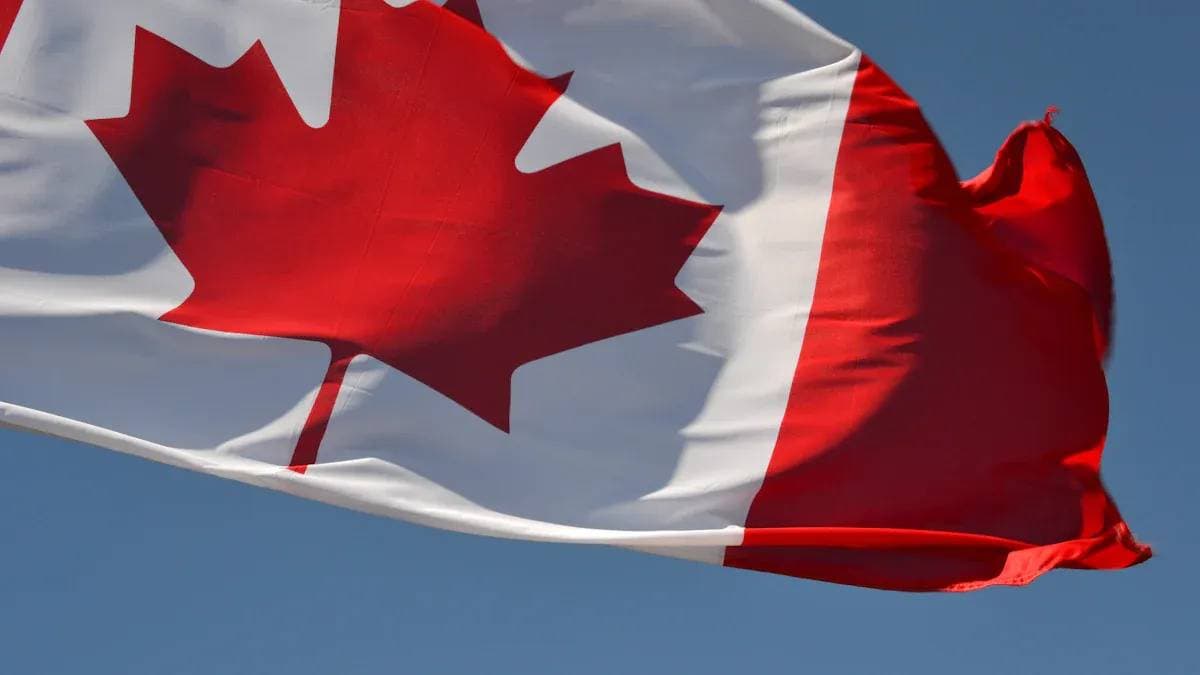How to Find Chase Routing Numbers for Wire Transfers

Image Source: unsplash
When sending or receiving wire transfers with Chase, using the correct routing number ensures smooth processing. For domestic wire transfers, Chase uses the routing number 021000021. If you’re handling international wire transfers, Chase requires the SWIFT code CHASUS33. Each routing number serves a specific purpose, whether it’s for domestic transactions or incoming wire transfers from abroad. Mistakes in routing numbers can delay money transfers or cause them to fail entirely. By knowing the exact Chase routing number for your wire transfer, you avoid unnecessary errors and ensure your funds reach their destination securely.
Key Takeaways
- Always use the right routing number for wire transfers. For transfers in the U.S., use 021000021. For international transfers, use the SWIFT code CHASUS33.
- You can find your routing number on a check, Chase’s website, or their app. This helps you get the correct details for your transfers.
- Check your routing number carefully before sending money. A single wrong number can delay or stop your transfer.
- If you can’t find your routing number, call Chase customer service. They can quickly give you the correct number.
- Save your routing number and SWIFT code for later. This makes future transfers faster and easier.
How to Find a Routing Number for Domestic Wire Transfers

Image Source: unsplash
Locating the Chase Routing Number on a Check
One of the easiest ways to find a routing number for domestic wire transfers is by looking at a check from your Chase account. The routing number is printed at the bottom left corner of the check. It is the first set of nine digits, followed by your account number and the check number. This sequence ensures that the bank can process your wire transfer accurately.
If you don’t have a check, there are alternative ways to locate your Chase routing number. You can log into your online banking account, check your mobile banking app, or review your bank statement. These methods provide quick access to your routing number without needing a physical check.
Tip: Always double-check the routing number on your check to ensure it matches the one required for wire transfers. Using the wrong number can delay your transaction.
Using Chase Online Banking or the Chase Mobile App
Chase makes it simple to find a routing number through its online banking platform or mobile app. When you log into your Chase account, navigate to the account details section. Here, you’ll find your ABA routing number listed alongside your account number. This feature is especially helpful if you’re setting up a wire transfer or need to verify your bank routing number.
The Chase Mobile app offers similar functionality. Open the app, select your Chase account, and look for the routing number under the account details section. This method is convenient and ensures you have the correct information at your fingertips.
| Transfer Information | Details |
|---|---|
| Bank Address | JPMorgan Chase Bank, N.A., 270 Park Avenue, New York, NY 10017 |
| SWIFT/BIC Code | CHASUS33 (for international transfers) |
| Routing Number | 021000021 (for domestic wire transfers) |
| Account Number Requirements | Ensure correct formatting as required by the recipient’s bank |
Note: The routing number displayed in your account details is specific to domestic wire transfers. For international wire transfers, you’ll need the SWIFT code CHASUS33.
Contacting Chase Customer Service for Assistance
If you’re unable to locate your routing number using the methods above, contacting Chase customer service is a reliable option. Chase representatives can provide you with the correct routing number for your wire transfer. You can reach them by calling the number on the back of your debit card or visiting a local Chase branch.
When speaking with a representative, have your account information ready. This includes your Chase account number and any details about the wire transfer you’re initiating. Providing accurate information ensures the representative can assist you efficiently.
Pro Tip: Save the routing number provided by customer service for future reference. This will save you time the next time you need to initiate a wire transfer.
How to Find a Routing Number for International Wire Transfers

Image Source: pexels
Understanding the SWIFT Code for Chase Bank
When you need to send or receive international wire transfers through Chase, the SWIFT code plays a crucial role. The Chase SWIFT code, CHASUS33, identifies Chase Bank globally and ensures your funds reach the correct destination. This code is essential for international payments, as it helps banks communicate securely during the transaction process.
To use the SWIFT code effectively, you must provide accurate details about the recipient and their bank. These include:
- Recipient’s name
- Recipient’s address
- Recipient’s bank name
- Recipient’s bank address
- Recipient’s bank account number or IBAN
- Recipient’s SWIFT/BIC code
- Purpose of payment (required in some countries)
- Currency
Providing complete and accurate information minimizes errors and ensures your international wire transfer is processed smoothly.
Tip: Always double-check the SWIFT/BIC code and recipient details before initiating an international wire transfer. Mistakes can lead to delays or failed transactions.
Using Chase’s Specific Routing Number for International Wire Transfers
Chase uses distinct routing numbers for domestic and international wire transfers. For international transactions, you need the Chase SWIFT code CHASUS33. This code is specifically designed for incoming international payments and ensures your funds are routed correctly.
Here’s a quick reference for Chase’s routing numbers:
| Transaction Type | Routing Information |
|---|---|
| Incoming International Payments | SWIFT Code: CHASUS33 |
| Incoming Domestic Payments | Routing Number: 021000021 |
When initiating an international wire transfer, ensure you use the SWIFT code instead of the domestic routing number. This distinction is critical for successful transactions.
Note: If you’re unsure about which routing number to use, contact Chase customer service for clarification. They can guide you based on your transaction type.
How BiyaPay Simplifies International Wire Transfers with Chase
Managing international wire transfers can be complex, especially when dealing with multiple currencies and banking systems. BiyaPay simplifies this process by integrating seamlessly with Chase’s wire transfer services. With BiyaPay, you can:
- Automate the process of entering recipient details, reducing errors.
- Convert currencies at competitive rates, saving you money.
- Track your international payments in real-time, ensuring transparency.
- Access a user-friendly platform that simplifies the entire wire transfer process.
By using BiyaPay alongside Chase, you streamline your international wire transfers and gain peace of mind knowing your transactions are secure and efficient.
Pro Tip: If you frequently send or receive international wire transfers, consider using BiyaPay to optimize your workflow and reduce processing times.
Common Mistakes to Avoid When Using a Chase Routing Number
Using the wrong routing number for the transaction type
One of the most common errors involves using the wrong routing number for your wire transfer. Chase provides specific routing numbers for different transaction types. For domestic wire transfers, you must use the routing number 021000021. However, international wire transfers require the SWIFT code CHASUS33. Mixing these up can lead to failed transactions or delays. Always confirm the correct routing number based on whether your transfer is domestic or international. This ensures your funds reach the intended recipient without unnecessary complications.
Tip: If you’re unsure which routing number to use, consult Chase’s official resources or contact their customer service for guidance.
Failing to verify the routing number before initiating a transfer
Failing to double-check the routing number before starting a wire transfer can result in significant delays. Even a single incorrect digit can misroute your funds, causing frustration and additional fees. Before initiating a transfer, verify the routing number through Chase’s online banking platform, mobile app, or by contacting customer service. This simple step can save you time and prevent costly errors.
Pro Tip: Keep a record of the correct routing numbers for your Chase account. This will make future transactions faster and more efficient.
Confusing routing numbers with SWIFT codes
Routing numbers and SWIFT codes serve different purposes, yet many people confuse the two. Routing numbers are used for domestic transactions within the U.S., while SWIFT codes are essential for international wire transfers. Understanding this distinction is crucial for successful transactions. The table below highlights the key differences:
| Feature | Routing Number | SWIFT Code |
|---|---|---|
| Usage | Used for domestic transactions in the U.S. | Used for international transactions |
| Identification | Identifies a specific bank in the U.S. | Identifies a bank globally |
When sending an international wire transfer, always use the SWIFT code CHASUS33 for Chase. For domestic transfers, rely on the routing number 021000021. This clarity ensures your funds are routed correctly.
Note: If you’re ever in doubt, reach out to Chase for assistance. Their representatives can help you determine the correct code for your transaction.
Tips to Verify a Chase Routing Number
Double-checking the number with Chase’s official resources
Verifying your Chase routing number through official resources ensures accuracy and prevents errors during wire transfers. Chase provides multiple reliable options for routing number verification. You can log into your Chase account via the online banking platform or mobile app. Navigate to the account details section to find the routing number specific to your account. Alternatively, you can contact Chase customer service for direct assistance.
Using official resources minimizes the risk of using outdated or incorrect information. Chase updates its routing numbers periodically, especially for regional accounts. By relying on Chase’s official tools, you ensure your wire transfer is processed smoothly.
Tip: Bookmark Chase’s official website or save the customer service contact number for quick access when verifying routing numbers.
Cross-referencing with your account type and location
Routing numbers often vary based on your account type and the state where your Chase account was opened. Cross-referencing these details ensures you use the correct routing number for your wire transfer. For example, Chase accounts in California use the routing number 121042882, while accounts in Texas use 111900659.
| State | Routing Number |
|---|---|
| California | 121042882 |
| Texas | 111900659 |
| New York | 026012881 |
| Florida | 063107513 |
| Illinois | 071101307 |
Routing numbers are linked to geographic locations, making cross-referencing essential for accurate transaction processing. Using the wrong routing number can lead to failed transfers or delays.
Note: If you’re unsure about your routing number, consult Chase’s customer service or use their online tools to confirm the correct number for your account.
Ensuring the number matches the transaction type (domestic vs. international)
Routing numbers differ based on the type of transaction you’re initiating. Domestic wire transfers require the Chase routing number 021000021, while international wire transfers use the SWIFT code CHASUS33. Mixing these up can result in failed transactions or delays.
When verifying your routing number, ensure it aligns with the transaction type. For domestic transfers, use the routing number specific to your Chase account. For international wire transfers, rely on the SWIFT code. This distinction is critical for routing your funds correctly.
Pro Tip: Save both the domestic routing number and SWIFT code for future reference. This will simplify the process when initiating wire transfers.
Using the correct Chase routing number is essential for successful wire transfers. You ensure smooth transactions by verifying the routing number through Chase’s official resources, such as the mobile app or customer service. Always confirm the routing number matches your transaction type, whether domestic or international. Double-checking your account details prevents errors and delays. Following these steps guarantees your Chase wire transfer reaches its destination securely and efficiently.
Reminder: Save the routing number and SWIFT code for future use. This simplifies the process and reduces the risk of mistakes.
FAQ
What is the difference between a routing number and a SWIFT code?
A routing number identifies your bank for domestic transactions, while a SWIFT code is used for international wire transfers. For Chase, the routing number is 021000021, and the SWIFT code is CHASUS33. Always use the correct one based on your transaction type.
Can I find my Chase routing number without a check?
Yes, you can locate your routing number through Chase’s online banking platform or mobile app. Navigate to your account details section to find it. Alternatively, contact Chase customer service for assistance if you cannot access these tools.
Why does my Chase account have different routing numbers?
Routing numbers vary based on your account type and the state where you opened it. For example, Chase accounts in California use a different routing number than those in Texas. Always verify the correct number for your specific account before initiating a transfer.
How do I verify my Chase routing number?
You can verify your routing number by logging into your Chase account online or using the mobile app. Check the account details section for accuracy. If you’re unsure, contact Chase customer service to confirm the correct number for your transaction.
What happens if I use the wrong routing number?
Using the wrong routing number can delay or fail your transaction. For domestic transfers, ensure you use 021000021. For international transfers, use the SWIFT code CHASUS33. Double-check your account details to avoid errors.
*This article is provided for general information purposes and does not constitute legal, tax or other professional advice from BiyaPay or its subsidiaries and its affiliates, and it is not intended as a substitute for obtaining advice from a financial advisor or any other professional.
We make no representations, warranties or warranties, express or implied, as to the accuracy, completeness or timeliness of the contents of this publication.
Related Blogs of

Zelle Wire Transfer or ACH? Clearing Up the Confusion

The 18 Best Apps to Earn Real Cash This Year

SoFi Checking and Savings A Deep Dive Review

Why Is Canada's Country Code 1
Choose Country or Region to Read Local Blog
Contact Us
BIYA GLOBAL LLC is a licensed entity registered with the U.S. Securities and Exchange Commission (SEC No.: 802-127417); a certified member of the Financial Industry Regulatory Authority (FINRA) (Central Registration Depository CRD No.: 325027); regulated by the Financial Industry Regulatory Authority (FINRA) and the U.S. Securities and Exchange Commission (SEC).
BIYA GLOBAL LLC is registered with the Financial Crimes Enforcement Network (FinCEN), an agency under the U.S. Department of the Treasury, as a Money Services Business (MSB), with registration number 31000218637349, and regulated by the Financial Crimes Enforcement Network (FinCEN).
BIYA GLOBAL LIMITED is a registered Financial Service Provider (FSP) in New Zealand, with registration number FSP1007221, and is also a registered member of the Financial Services Complaints Limited (FSCL), an independent dispute resolution scheme in New Zealand.



















